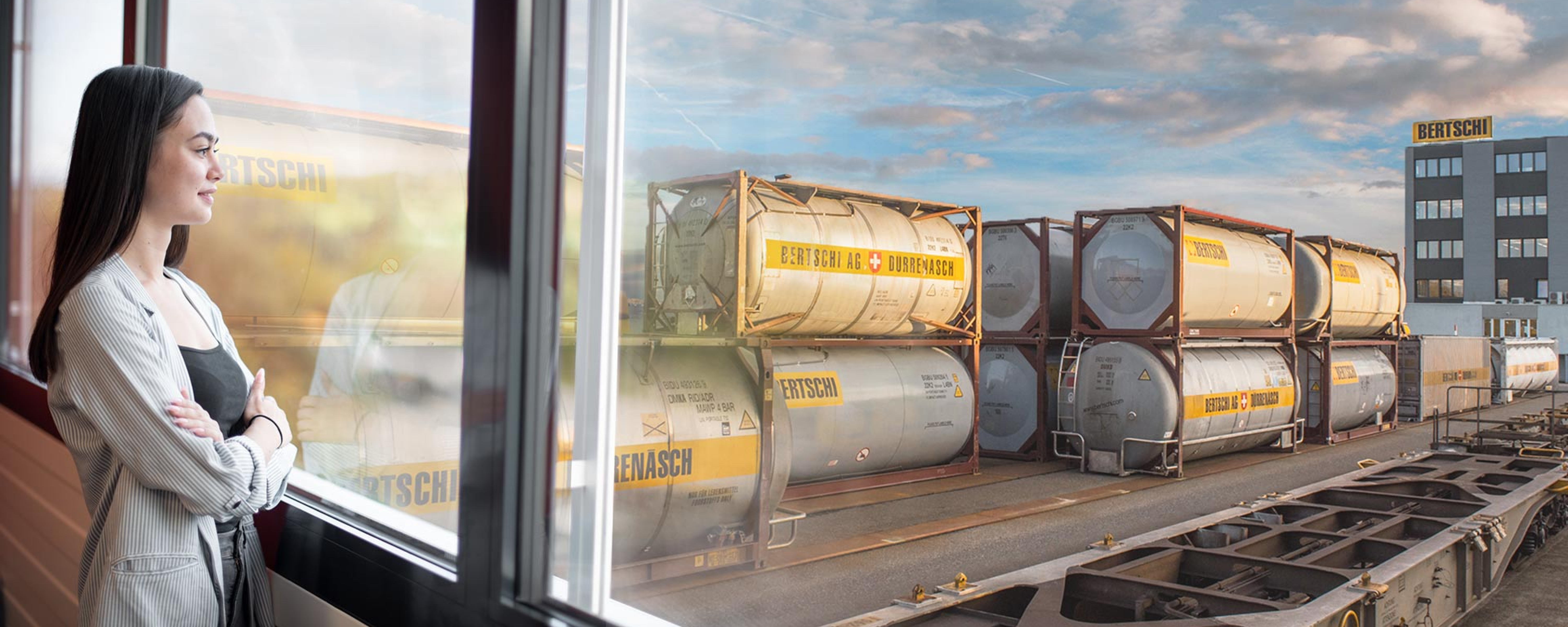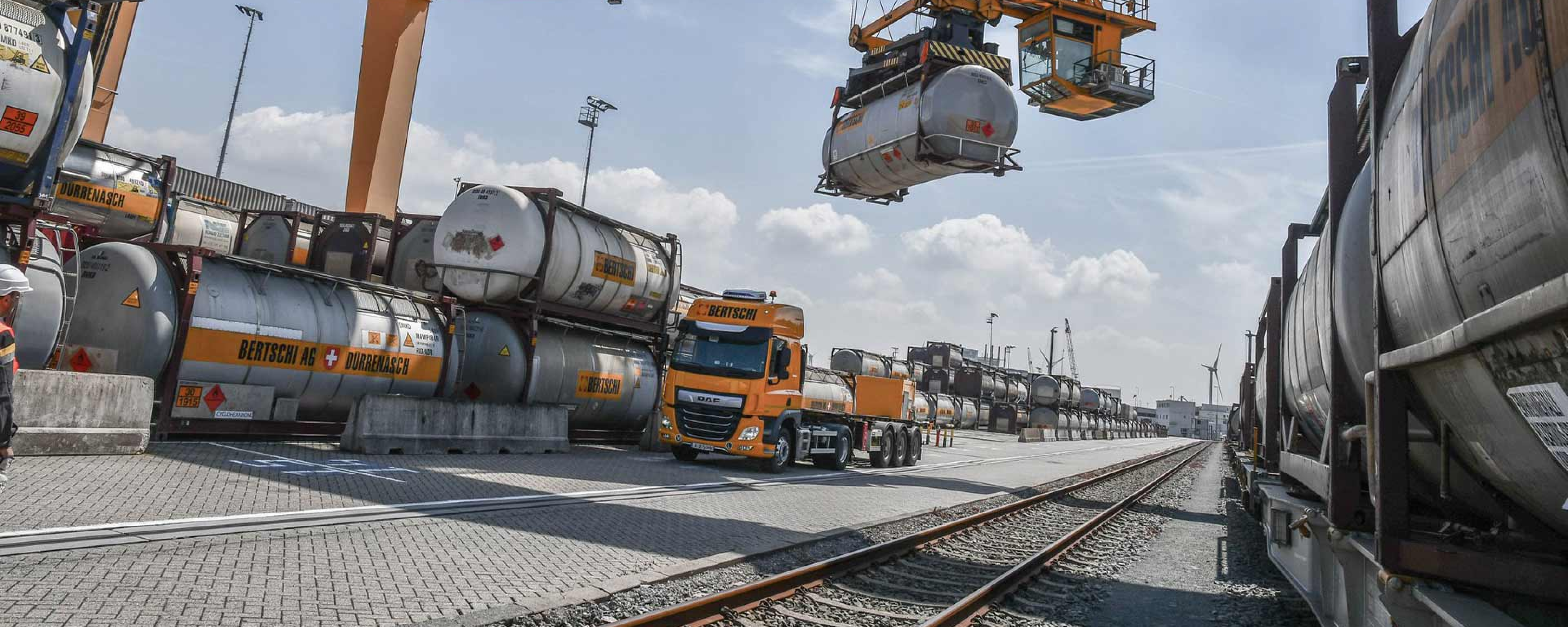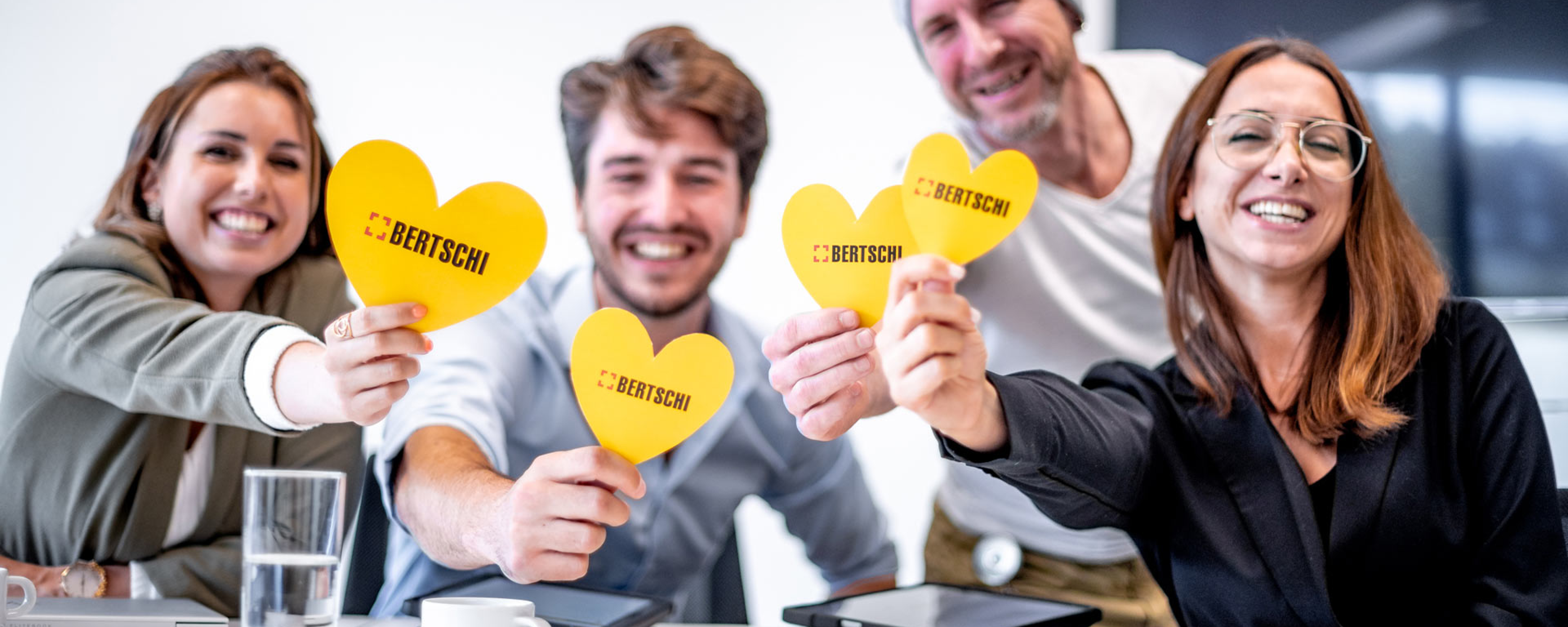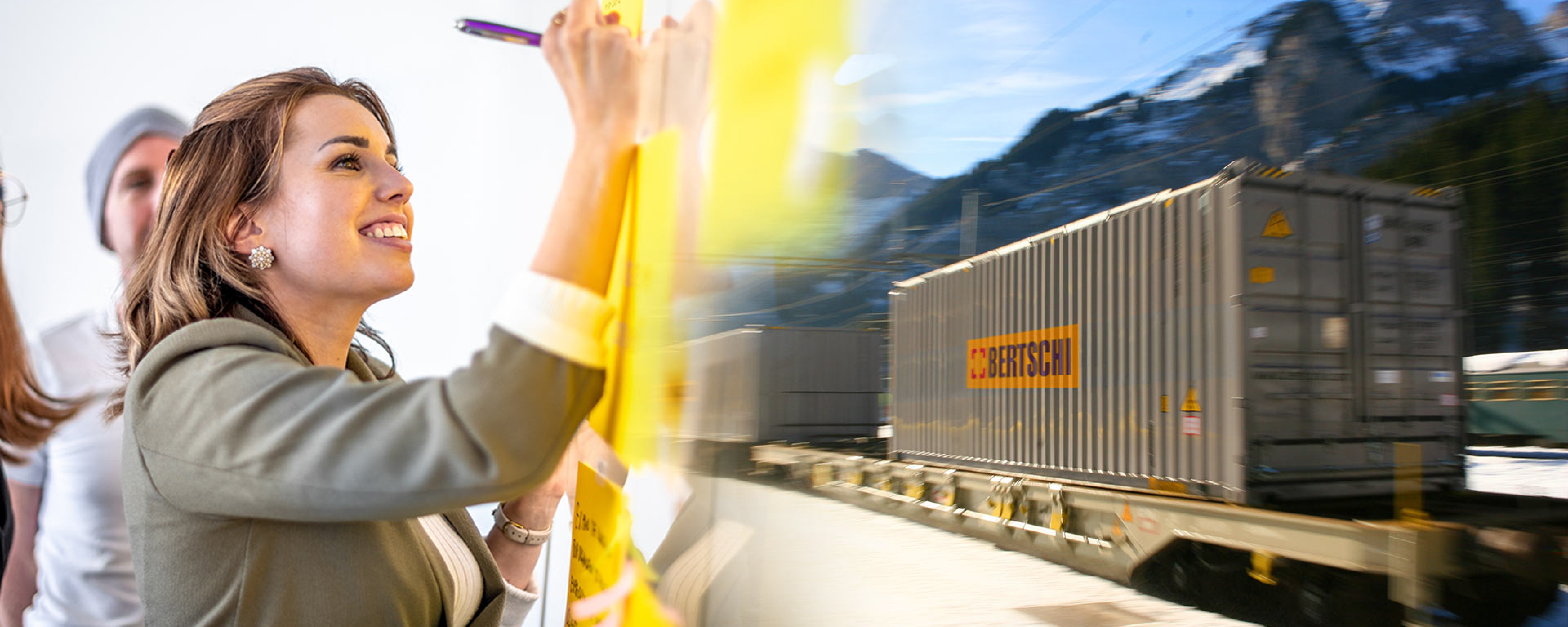Bertschi Group on the Path Towards Climate-Neutral Logistics
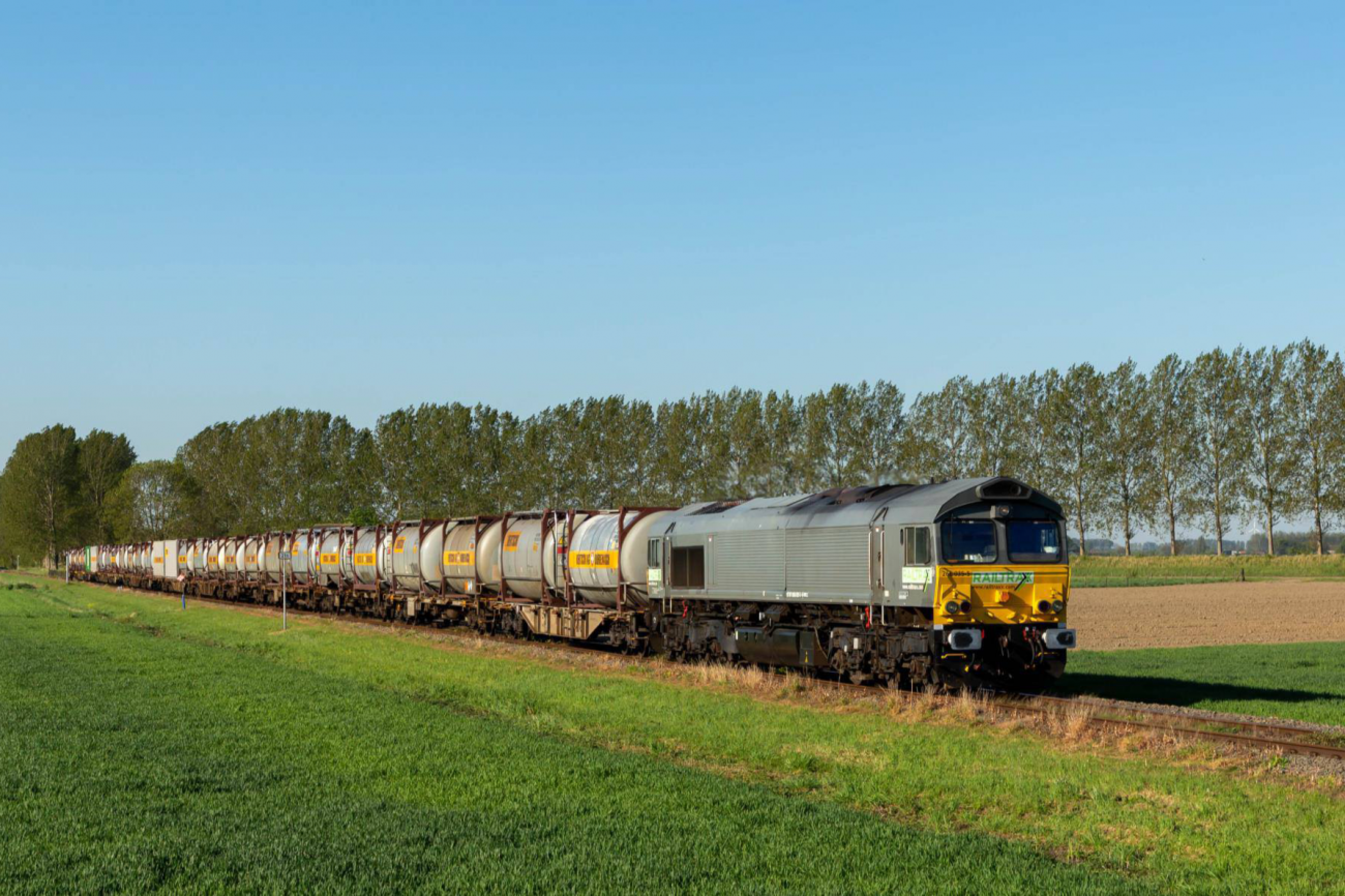
The European Union passed the Green Deal Plan in 2019, aiming for a 90% reduction in greenhouse gases from transport by 2050. Well ahead of this target is Bertschi Group, with its market leading position in sustainable intermodal transport, and further plans and initiatives in climate neutral technology.
The transport sector accounts for 25% of European greenhouse gas emissions. In land freight transport, 99% of CO2 emissions come from trucks, and only 1% from rail—although the latter has a 20% market share.

Intermodal transport is freight transport wherein different means of transport (truck, rail, and ship) are combined in the supply chain. With its shift to rail, Bertschi Group, a global chemical logistics company, reduces its transport's CO2 emissions by 300,000 tons annually. That is equivalent to the total emissions of a town of 70,000 inhabitants.
“Today, Bertschi already operates 90% of all European land transport in intermodal transport, and is therefore well ahead of the targeted development,” says Jan Arnet, Bertschi Group CEO. “Our intermodal transports passing through Switzerland already qualify as zero-emission, as trains that travel through Switzerland use electricity obtained exclusively from non-fossil sources (hydro, solar, wind, and nuclear power),” he adds.

Major investments in intermodal transportation
With new EU incentives for shifting from road to intermodal transport, an increasing number of customers are looking for environmentally friendly logistics. “Thanks to Bertschi’s leading position in intermodal transport in Europe, this opens up interesting opportunities for us. But to take advantage of them will require major investments,” says Hans-Jörg Bertschi, Executive Chairman of the Bertschi Board of Directors.
Bertschi is planning the construction and expansion of its intermodal transport terminals, with the extension of the Rotterdam Botlek and Duisburg terminals planned for this year, and further investments in the Benelux in the near future. Furthermore, Bertschi is increasing its focus on environmentally friendly rail transport worldwide, including: trade with China via the Silk Road, in Russia, and in the US. The company is also optimizing its internal infrastructure: a significant example is the Swiss Birrfeld tank cleaning facility, where Bertschi has succeeded in reducing heating energy and CO2 emissions by two-thirds through investing in optimizations and heat recovery.
Hydrogen trucks will enable climate-neutral intermodal transport chains
The company’s next climate objective is door-to-door transport chains with zero CO2 emissions, including intermodal pre- and on-carriage by road. Bertschi will rely on hydrogen technology with fuel cells: green hydrogen (H2) generated with renewable energy sources enables the operation of trucks with zero CO2 emissions. The company is preparing for delivery of the first 40 / 44 tons H2 tractor units in approximately three years for a pilot project in Switzerland.
After a successful pilot launch, an in-house hydrogen fuelling station shall be installed at the Birrfeld (Switzerland) terminal, among others. The hydrogen will be generated through solar energy and hydropower electricity during surplus periods. Surplus electricity cannot be stored and must otherwise be ‘destroyed’. However, the energy from this electricity can be stored in hydrogen and reconverted back into electricity in the truck’s fuel cell to power the vehicle.
“So the first climate-neutral transport chains made by Bertschi could be a reality in the very near future,” Jan Arnet proudly predicts. “For consumer-focused customers, climate-neutral logistics is already an added-value proposition. And customers in the chemical industry are also increasingly focusing on climate targets for logistics.”
Zero-emission means anticipating the future
From the steps mentioned above, it is clear that Bertschi Group, as a company, is preparing for developments that result from climate change.
Hans-Jörg Bertschi emphasizes that the speed of this development will depend to a large extent on the framework conditions set by politicians over the next few years: “We will not wait for politics, we are now already starting to anticipate the future. We believe that by doing so, we are not only doing something good for the climate and the environment, but also enhancing the company’s long-¬term opportunity for succeeding in rapidly changing markets.”
